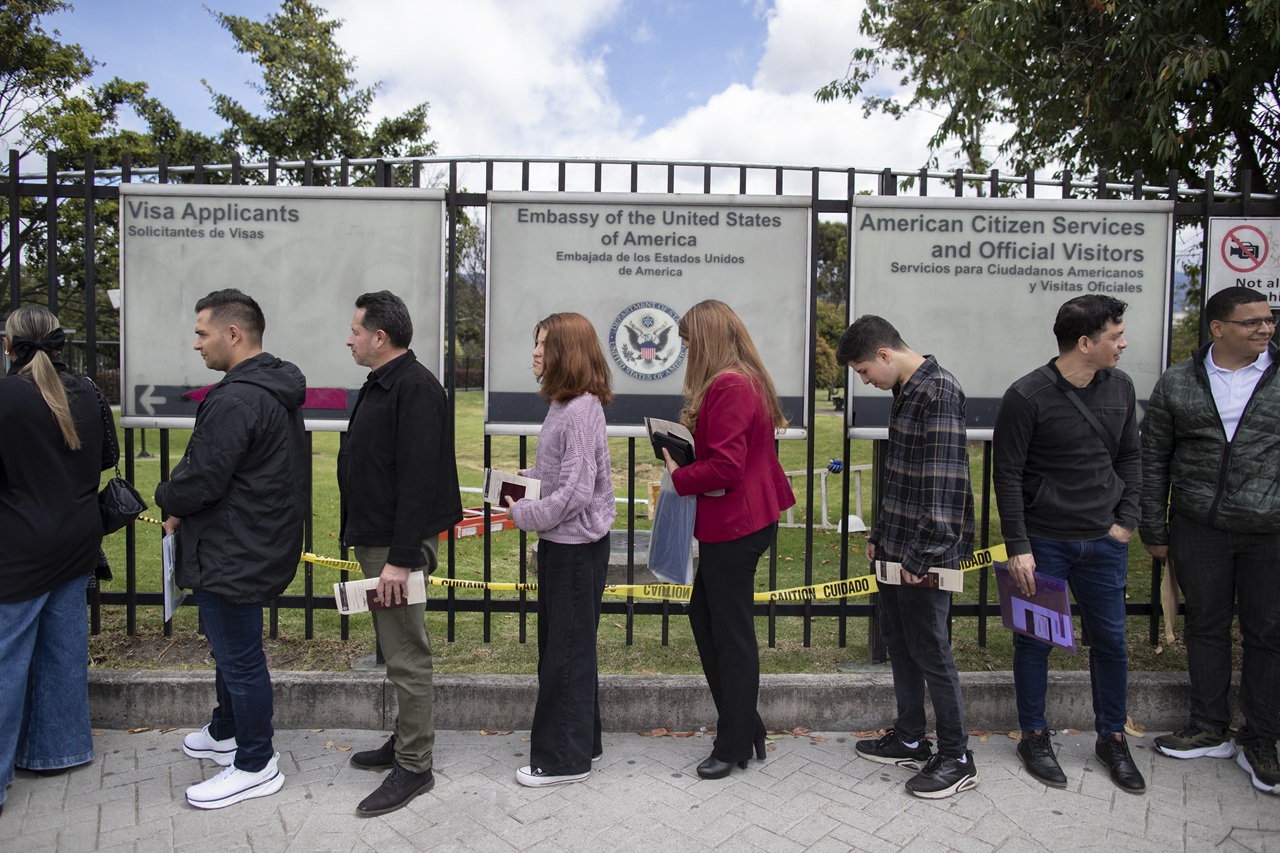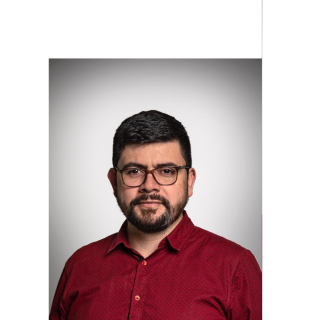
How I got my visa to the United States
In spite of the Government's announcements, the process turned out to be quick and smooth. Why?
The long-awaited appointment with the consul at the U.S. Embassy in Bogota took place on February 26. My wife, my two daughters and I arrived early at the consular representation in Teusaquillo, at the intersection of Avenida El Dorado and Carrera 50. We did not have high expectations: our visa had expired in 2017 due to carelessness and lack of resources. At that time we were facing a family financial crisis that I recounted in a book published in 2023. But that is another story. What is certain is that we lost the visa and let time pass.
We did not consider the procedure again until 2023, when we had overcome the economic downturn and were excited about the idea of traveling as a family again, as we had done several times in the previous decade.
My relationship as a tourist with the United States has different stages. My first trip was in 1999 to cover, as a journalist, a World Bank and International Monetary Fund summit in Washington. At that time I was working for the newspaper La República, and it was my first experience in international coverage.
Years later, in 2004, I returned to report on one of the rounds of negotiations of the U.S.-Colombia Free Trade Agreement (FTA) in Tucson, Arizona. Then, as now, tariffs were a key issue in the bilateral relationship.
A decade later, I covered the launch of Grupo Aval's stock on Wall Street. It was then that I thought it would be a great opportunity to organize a family vacation. The occasion came in 2014, when I won the Citi Journalistic Excellence Award, which included a week at Columbia University. Since my ticket was covered, we decided to have my family join me and extended the trip for an additional week.
That first trip together left us with many memories, including a moment we will never forget: on June 16, 2015, while we were enjoying our last days in New York, Donald Trump launched his candidacy for president. An image that, unbeknownst to him, would mark the political future of the country.
We then returned to the U.S. on a couple more occasions: to Miami during Black Friday and to Chicago in 2016 to celebrate our 20th wedding anniversary.
In 2017, our financial situation changed and we let the visa expire. We didn't talk about it again until a couple of years ago.
A long wait
Letting the visa expire is a bad deal: it involves starting the process from scratch. However, the U.S. government keeps all the immigration records of those who have visited the country, which, in our case, could have made renewal easier.
In 2023, we took up the subject again and in August we completed the online registration. The appointment was assigned for October 2025. We tried to reschedule by constantly checking the website, but to no avail. Eventually, we stopped insisting.
By 2024, the political landscape had changed: Trump had been re-elected, and the relationship with Colombia was going through tense times due to President Gustavo Petro's refusal to receive illegal migrants deported from the U.S. We thought this impasse would further complicate the visa process.
But, unexpectedly, in mid-February we received an email offering the possibility of moving up our appointment. We immediately logged into the system and got an early appointment.
A smoother process than expected
The first appointment, on February 21, was at the Applicant Service Center (ASC). The long lines showed that we were not the only ones in the process.
On February 26, we attended the consular interview. In less than an hour and a half, my wife, my daughters and I were approved.
The B1/B2 visa process turned out to be faster than expected, while the immigration policy against illegal immigration is getting tougher. The bet on legal migration makes sense: although tourism has shown a recovery and more than 70 million visitors come to the country, the numbers still do not reach pre-pandemic levels.
One of the biggest challenges facing the United States today is its external deficit, which already exceeds $1.1 trillion. A rebound in tourism could be a key part of alleviating this economic pressure.
The ease with which we obtained our visa suggests a clear message: the U.S. wants to attract more tourists to address its complex financial picture.
Will this strategy work? Only time will tell.










LEAVE A COMMENT: